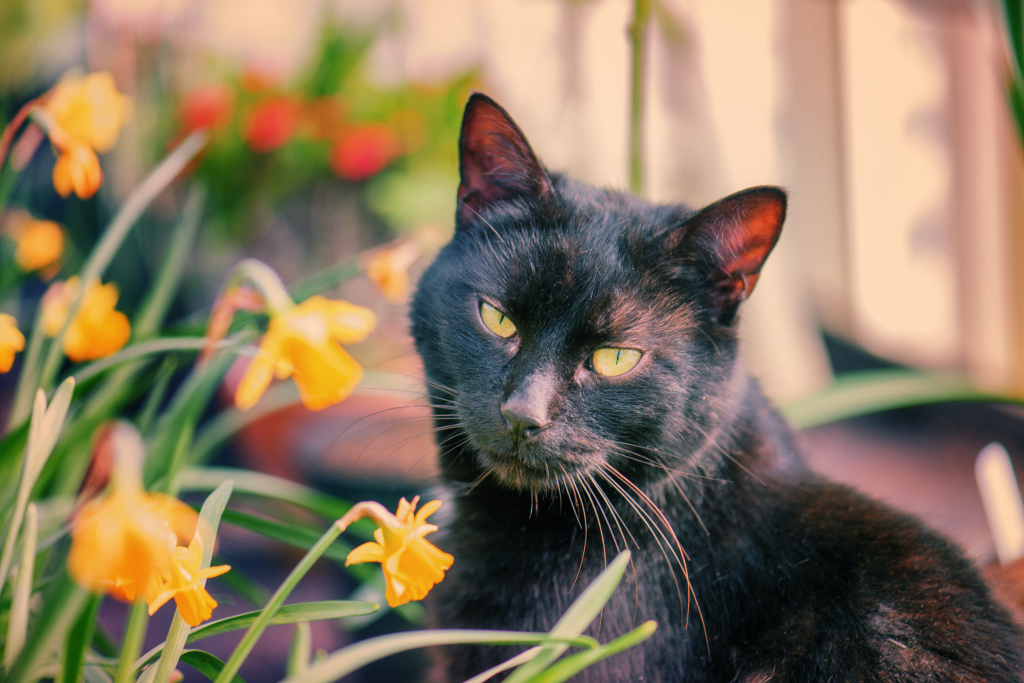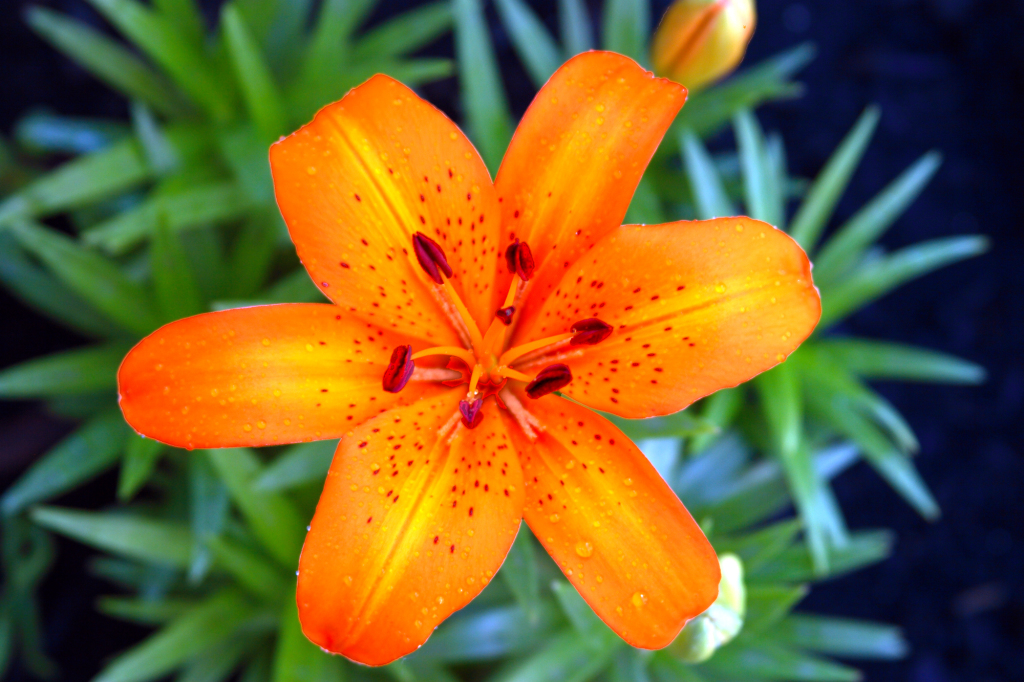Lilies are a popular choice for yards and gardens, especially during the Easter and spring season. And it’s no surprise! Lily flowers are beautiful outside in gardens and inside in bouquets. But as lovely as a lily is, they are dangerous to your kitty and can even be deadly. Lilies are not harmful to dogs or people, but if you have a cat in your home, help keep them safe by avoiding lilies and choosing other flowers to brighten up your space.
Lilies and cats don’t mix!
The Lilium species or “true lilies” such as Easter, tiger, Asiatic, Oriental, and daylilies (hermerocallis), ect. are considered moderately to severely toxic when ingested by cats. If a cat ingests the petals, leaves, pollen, or even water from a vase that is holding lilies, the cat can suffer from kidney failure that can lead to death.
Other lily varieties, such as peace, Peruvian, and calla, are less dangerous to cats and when eaten usually cause only minor symptoms, such as irritation to the mouth, tongue, pharynx, and esophagus. These milder lilies may cause your cat to drool a bit, but your feline friend should be just fine if she eats some of these lily plants.
What to do if your cat eats a harmful lily
If you think your cat has eaten part of a lily, look for the following symptoms: lack of appetite, lethargy, hiding, vomiting, diarrhea, halitosis, dehydration, inappropriate urination or thirst, and seizures.
If you see your cat eating any part of a lily or if your cat is showing symptoms and you suspect he may have eaten part of a lily plant, bring your cat and the plant, if possible, immediately to your vet for care. The sooner your cat is treated, the more effective treatment will be.
Safer flower choices

Roses, sunflowers, tulips, irises, carnations, mums, baby’s breath, hyacinth and daffodils are all better options for your kitty
Fortunately, there are so many other options that are just as beautiful in the garden and are much safer than lilies for you cats. Roses, sunflowers, tulips, irises, carnations, mums, baby’s breath, hyacinth and daffodils are all good options for your kitty. While those plants may also induce symptoms like vomiting and diarrhea, they are not considered life threatening.

 Contact 612-483-GOAT
Contact 612-483-GOAT